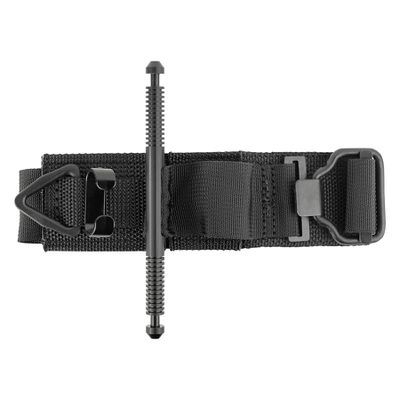Difference between revisions of "Combat Application Tourniquet"
Jump to navigation
Jump to search
Mfrdmanager (talk | contribs) |
Mfrdmanager (talk | contribs) (→9.35 COMBAT APPLICATION TOURNIQUET) |
||
| Line 1: | Line 1: | ||
==Procedure Guidelines== | ==Procedure Guidelines== | ||
| − | ===9. | + | ===9.33 COMBAT APPLICATION TOURNIQUET=== |
Severe traumatic extremity injuries with uncontrolled bleeding may sometimes require the application of a tourniquet. The SOF T Tourniquet is designed to provide effective pressure on the injured extremity to occlude arterial bleeding. See PP 6.06 “[[Extremity Injuries]]” for indications. | Severe traumatic extremity injuries with uncontrolled bleeding may sometimes require the application of a tourniquet. The SOF T Tourniquet is designed to provide effective pressure on the injured extremity to occlude arterial bleeding. See PP 6.06 “[[Extremity Injuries]]” for indications. | ||
Latest revision as of 07:38, 16 November 2020
Contents
Procedure Guidelines
9.33 COMBAT APPLICATION TOURNIQUET
Severe traumatic extremity injuries with uncontrolled bleeding may sometimes require the application of a tourniquet. The SOF T Tourniquet is designed to provide effective pressure on the injured extremity to occlude arterial bleeding. See PP 6.06 “Extremity Injuries” for indications.
FEATURES:
The SOF T uses a self-adhering band and friction adaptor buckle to fit a wide range of extremity sizes combined with a one-handed windlass system. The windlass system uses a free moving internal band to provide even circumferential pressure to the extremity.
APPLICATION PROCEDURE:
- SOF T
- Step 1
- Apply tourniquet proximal to the bleeding site.
- Route the band around the limb and pass the tip through the inside slit of the buckle.
- Pull the band tight.
- Step 2
- Pass the tip through the outside slit of the buckle.
- The friction buckle will lock the band in place.
- Step 3
- Pull the band very tight and securely fasten the band back on itself.
- Step 4
- Twist the rod until bright red bleeding has stopped and the distal pulse is eliminated.
- Step 5
- Place the rod inside the clip; locking it in place.
- Check for bleeding and distal pulse.
- If bleeding is not controlled, consider additional tightening or applying a second tourniquet proximal side by side to the first and reassess.
- Step 6
- Secure the rod inside the clip with the strap.
- Prepare the patient for transport and reassess.
- Record the time of application.
- Step 1
